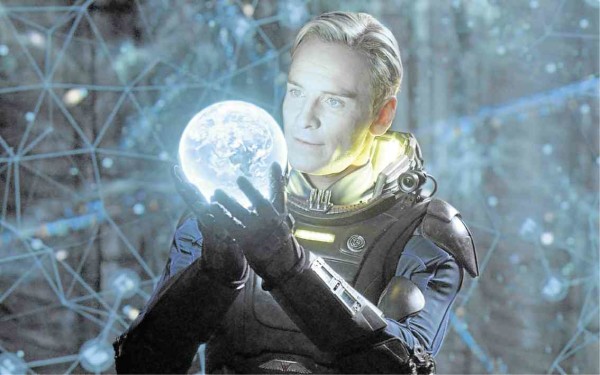The latest installment in the iconic “Alien” film franchise, “Alien Covenant,” is set in 2104, with the crew of a “colonizing” spaceship headed for a distant planet that will be populated by its initial colonists and cargo of precious human embryos.
Unfortunately, the spaceship’s captain is distracted along the way by the discovery of another planet that appears to be a similarly welcoming prospect for colonization, so he orders a probe to investigate its possibilities.
Alas, his decision turns out to be a huge mistake, as the planet reveals its many dangers and threats—but, it’s too late for its crew to do anything except suffer the tragic consequences.
We aren’t exactly ferocious fans of clangorously cautionary sci-fi flicks, but we make the occasional exception, especially if the speculative saga is megged by Ridley Scott, which “Covenant” is (it’s his third “Alien” movie).
True enough, the film is able to rise above the usual sci-fi downers, like implausible creatures and crises, as well as the tendency to depict robots and other exponents of advanced synthetic intelligence as terrifying threats to the survival of the human race.
“Covenant” does have its dreaded “synthetics”—in fact, it has two of them, Walter and David, both played by Michael Fassbender.
Instead of turning viewers off with their secret schemes for “universal” domination, however, Fassbender’s twin portrayals are in fact the film’s main attraction, particularly for acting buffs.
It’s a big treat to be able to see Fassbender taking his two “identical” synthetic characters, make them distinct personas—who even end up fighting to the death with each other!
Thanks to Ridley Scott for seeing in advance the great possibilities of such a climactic square-off, especially because the same actor is required to fight against “himself”!
Other plot developments aren’t as uniquely compelling, especially when the astronauts and colonists are compromised by their amateurish behavior, like when they investigate an unfamiliar planet without the space suits and helmets.
As a result, the planet’s deadly pathogens are able to infect their physical systems, ultimately using their bodies as “wombs” for monsters that threaten to overrun and dominate the entire universe.
Still, “Covenant” succeeds in spots terrifying viewers with the bizarre and bloodthirsty antics of its rampaging monsters. The fact that they burst out of their human victims’ bodies makes viewers feel even more vulnerable and helpless, hence the film’s elevated “fight factor.”
In terms of performance, Fassbender leaves his coactors far, far behind. The only other cinematic artist who’s able to keep up with him is director Scott.
Together, they make quite a team as Scott’s visionary imaginings give his lead actor “permission” to stretch his thespic limits—as never before!
